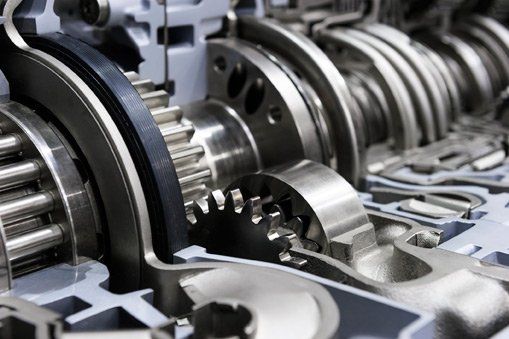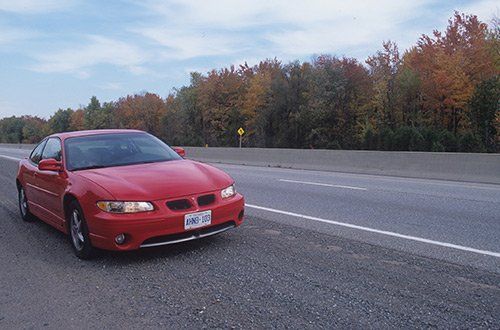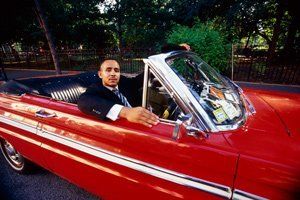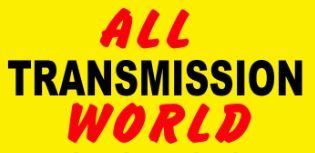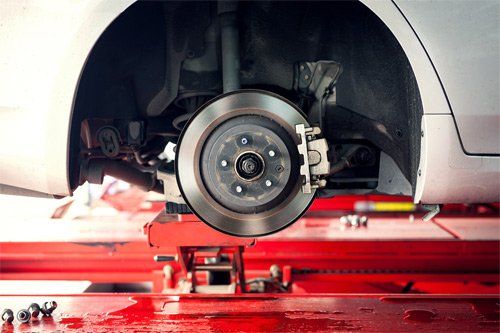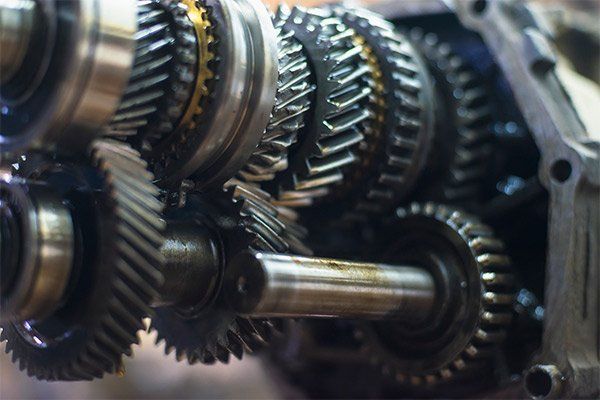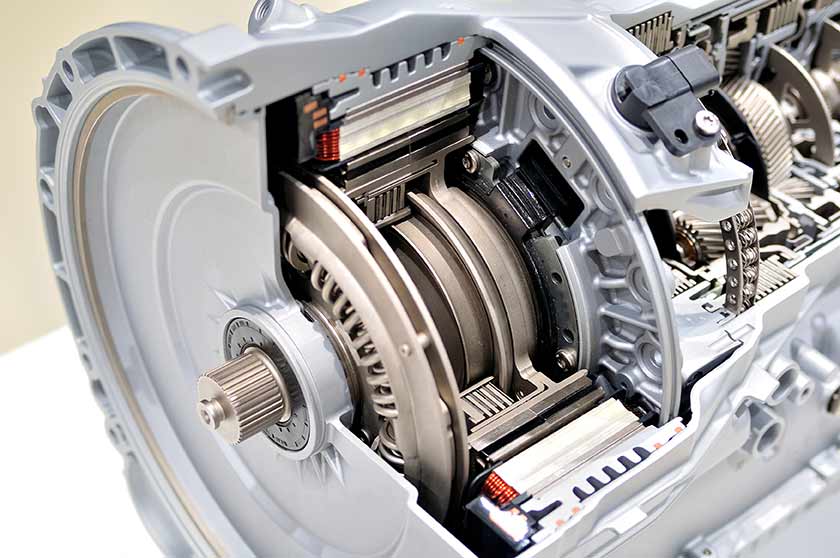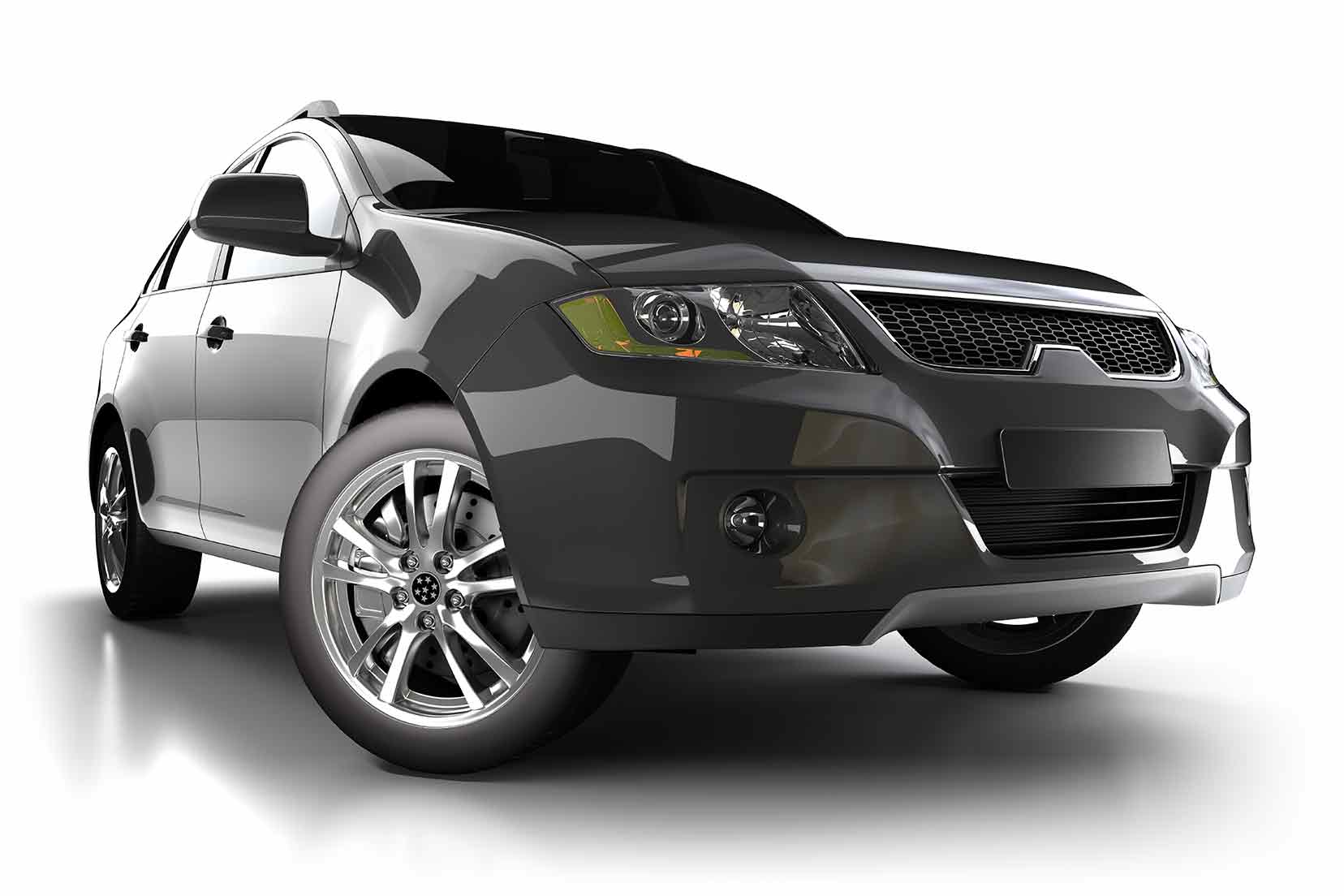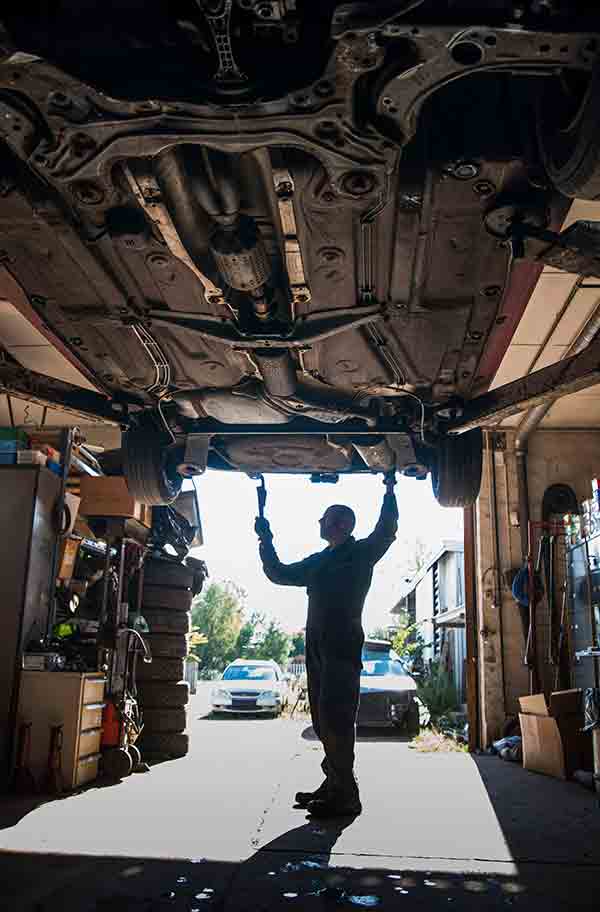Your car, which once was relatively silent when you drove to work, might now be making sounds that indicate problems with the undercarriage. Maybe you notice a slight grinding noise when you brake. Maybe you hear a groaning sound as you turn the corner. Or maybe the wheels seem to clunk a little bit as you slow down.
All of these sounds can indicate troubles with your brakes and wheels. Learn more about common problematic sounds before they escalate into full-blown safety issues or balloon your overall repair costs.
Usually, grinding as you slow or stop is a sign that your brakes need to be serviced. The grinding noise occurs because the brake pads have entirely worn away, causing the brake components to scrape together metal on metal.
Don’t ignore any grinding you hear; you should get your car repaired as soon as you can. If you continue to drive with grinding brakes, the rotors and calipers can become damaged, and replacing these drastically increases the cost of the brake repair. Instead of just paying to replace the pad, you'll pay hundreds of dollars more to replace the other brake components.
Ideally, you replace your brake pads before they ever get worn out enough to cause your brakes to grind. Usually, your brake pads will make a squealing noise when they are getting worn out.
The most common reason you might hear clunking as you turn or when driving on an uneven road is because you have failing ball joint. The ball joint connects the wheel to the steering control arm. It fits into a socket, allowing you to enjoy better suspension on the front end of the vehicle.
A bad ball joint is a safety hazard because if the ball joint falls, the wheel that it connects to the control arm can fall off. If this happens when you're traveling at high speed or on a more dangerous road, you could entirely wreck your vehicle.
Other signs of a failing ball joint include noticeable shaking as you drive your vehicle. Also, the vehicle could start to pull to the right or to the left because a bad ball joint on one side can affect your overall vehicle alignment.
Another common sound you can hear as your drive, turn, and brake is a rocking sound that doesn't come from the engine. Sometimes people overlook odd noises if they aren't engine related, thinking they will pass or that it's just a rock or tree branch caught in the tire.
However, the knocking sound you might hear when you go over even a small bump is not caused by something that will just go away. The sound is usually a sign of failing struts. Struts are the main component of your overall vehicle suspension. They are what make your ride smooth, and they also help maintain your tire alignment.
As the bushings in the struts begin to fail, the other components will knock against each other as you drive, causing the groaning, knocking sounds you might have been ignoring. Other signs of bad struts include leaking hydraulic fluid and excessive bounce that gets worse with increased mileage.
If you continue to drive with poor struts, the shocks will become more worn out. Your tires will also wear out more quickly; one side of the tire will fail more quickly than the other, taking months or even years off your tire life. You'll also stress your transmission, and the drag of your car can even cause engine trouble because of the terrible alignment.
Not all car
maintenance issues are engine related. Don't ignore undercarriage noises; get them checked with us at All Transmission World.
